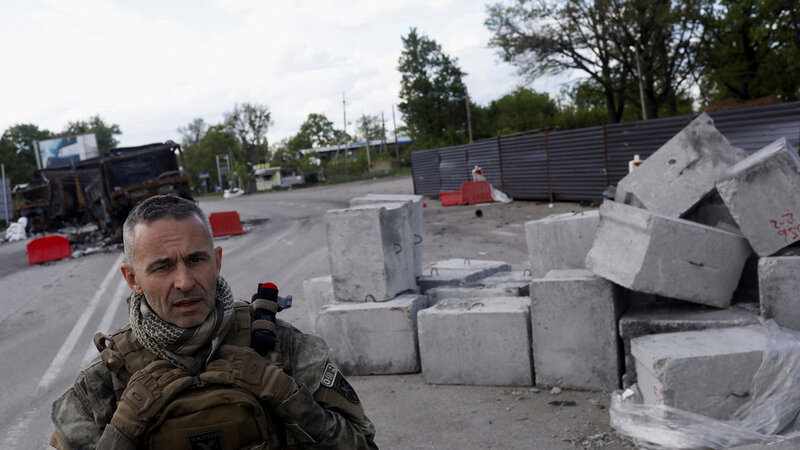https://www.npr.org/2022/05/31/ [login to see] /ukraine-kharkiv-billionaire-battalion-vsevolod-kozhemyako
One of Ukraine's wealthiest men is seated at a white piano in the lobby of a closed-down hotel in Ukraine's second-largest city. The multistory atrium is dark except for a few running lights along the edge of the carpet. Cardboard covers all the windows.
Wearing military fatigues, Vsevolod Kozhemyako is alone at the piano near the elevators, playing a slow, mournful rendition of Beethoven's Für Elise. The notes seep into the cavernous space.
Kozhemyako is the founder and CEO of Agrotrade Group, one of Ukraine's largest grain production, storage and export companies. But his focus is now on the war.
"Yes, I'm a businessman," he says. "And now I'm a commander of a military unit in Ukraine."
Kozhemyako set up and leads his own light infantry battalion. It's formally known as Khartia or "charter," and consists mostly of civilians. It's casually called the "billionaire's battalion," referring to Kozhemyako's wealth in Ukrainian currency, not dollars. Along with other wealthy Ukrainians, Kozhemyako pays for training, weapons and vehicles. His unit takes orders from the army but operates independently.



 Russia
Russia Ukraine
Ukraine


